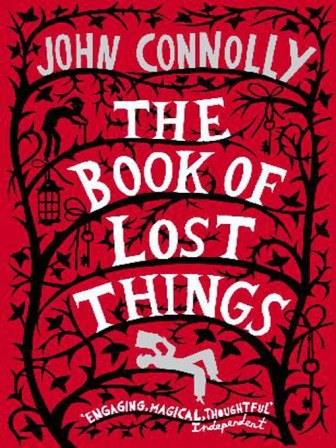
I like to watch TV series in installments: ideally no more than one episode a night so I can savour each one, digesting the ideas and developments before moving on to the next.
Gary A. Braunbeck’s collection of short stories requires the same approach. There are 40 stories in total but to gorge yourself on them, to read more than a few in each sitting, would require you to skim the surface when Braunbeck wants you to immerse yourself in the horrors embedded in each of these tales.
What’s it about?
This is a collection of short stories that spans Braunbeck’s career and incorporates a number of genres, including elements of fantasy and science-fiction, but the driving force behind each tale is horror: horror driven by who we are and what we do to each other. As fellow horror/fantasy/supernatural author Tim Waggoner notes in his introduction to ‘El Poso Del Mundo’, ‘true horror – horror that matters – isn’t about machete-wielding maniacs, but rather the pain that eats like cold acid at the center of the human heart.’ And though the book has its share of machete-wielders, they always have reasons, and there’s plenty of pain: loss, death, torture and sexual abuse of young children feature prominently throughout. This is not a book for the squeamish, though there’s no graphic glorification of violence here, just stunningly brutal events. (In fact, one story actually criticises the way violence is glorified in culture.)
What’s it like?
Varied. As the author himself notes in his introduction to the first part, ‘The stories in this section are all over the road. Kind of like my thought processes, but let’s not get into my dreadful personality problems this soon…” There are stories featuring cybercults, adults who believe they are children, God’s assistant and even ashes who narrate their woes to other heaps of ashes. My reactions were similarly varied: there were some chilling stories I thought were very powerful and some stories where I felt the events were simply too bizarre for me to follow.
Loneliness is a major theme, from the war veteran who is ignored after losing his face in battle to the children’s party magician who believes he’s Merlin to the man who dreams his blind date into life. The themes are what made reading the entire collection worthwhile; although I didn’t ‘get’ every story, I found it interesting to see how particular subjects were treated when returned to again and again. Fathers come under particular pressure in this collection; there are a number of very angry men whose feelings consume them and spit out their families, making the traditional family seem like quite a frightening idea in itself!
What’s to like?
Braunbeck is a writer who is primarily about the ideas (what if this thing happened?) but his prose can be beautifully poetic, too. In Wayne’s story, ‘For Want of a Smile’, we read that ‘Wayne’s thoughts of his impending blind date retreated to the back of his mind where they curled up in a corner, covered themselves against the cold, and snapped off the light.’ Later, in ‘Tales the Ashes Tell’, a character attempts to explain himself and seek redemption but finds that, ‘The rest of it dies in his throat, clogged by phlegm and failure and guilt.’
Braunbeck also has a deliciously dark sense of humour. In ‘Just Out of Reach’ we are told that, ‘It was necessary from time to time to check and make sure his chef hadn’t killed anyone. The staff tended to give better service when they weren’t dead.’ This is a particularly effective story in which a quite comic opening gradually shifts into an incredibly dark and powerful tale.
I also thoroughly enjoyed Braunbeck’s use of already established fictional characters and historical figures. In ‘Cyrano’ he provides an alternative postscript to ‘Frankenstein’ which makes use of Daniel Hawthorne’s ‘Rappaccini’s Daughter’, Oscar Wilde’s ‘The picture of Dorian Gray’, and Robert Louis Stevenson’s ‘Jekyll and Hyde’, among others. Obviously, this kind of intertwining of fictional narratives and characters works best when you have some familiarity with the stories (‘Rappacini’s Daughter’ was completely new to me) but it’s still enjoyable as a stand-alone story. Similarly, in ‘Curtain Call’, Bram Stoker’s Dracula haunts his creator in a world where Jonathan Harker has been easily overcome.
What’s not to like?
Basic errors, especially in homophones, are relatively frequent and (instances such as ‘formerly’ instead of ‘formally’) do catch my attention and inevitably detract from my appreciation of the overall story-telling.
Each of the 16 stories in part two featured an introduction from other writers and, while these were occasionally illuminating, sometimes they contained almost spoiler-esque information (and on a kindle it’s more challenging to skip spoilers), which could frustrate some readers who wanted a blank slate to appreciate the stories. (I am well aware that many readers may consider these a bonus!)
Final thoughts
This is a dark and powerful collection of horror stories from a writer who is clearly an accomplished craftsman. I enjoyed the twists and give Braunbeck full credit for writing the most disturbing tale I have EVER read (‘Chow Hound’ features a baby whose actions disturbed me greatly). In amongst the horror there are some more redemptive stories, which I particularly enjoyed, especially ‘Afterward, There Will Be a Hallway’, a sweet story in which a dead seven year old girl helps a man back to spiritual life, and ‘A Little off the Top’, in which a barber and his wife atone for their past sins in a rather magical way. Finally, ‘We now Pause for Station Identification’ (which won the Bram Stoker Award for Superior Achievement in Short Fiction in 2005,) offers a quietly desperate take on zombies.
This is horror that focuses on the human heart and examines why we do what we do. One not to be missed for horror fans.
‘Halfway Down the Stairs’,
Gary A. Braunbeck,
JournalStone, 2015, ebook


